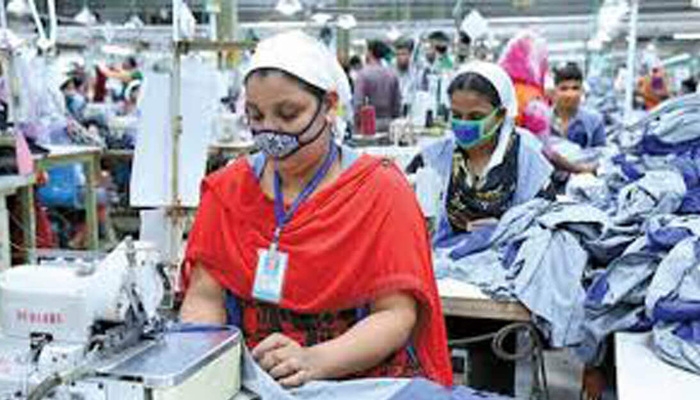

BRAC James P Grant School of Public Health (JPGSPH), BRAC University and Bangladesh Health Watch (BHW) recently unveiled the research findings of six different studies through a virtual press launch on 18 April. The studies that looked at the impact of the coronavirus outbreak on the general and mental health of the population at large, RMG workers, frontline health workers and marginalized groups – including the transgender community in Bangladesh.
The virtual press meet was chaired by Dr. Ahmed Mushtaque Raza Chowdhury, Convener, Bangladesh Health Watch Working Group and moderated by Dr. Yasmin Ahmed, Adviser, BHW. Dr. Sabina Faiz Rashid, Dean of BRAC James P Grant School of Public Health was also present among others. Besides the journalist representatives of donor, members of BHW Working Group and Advisory Group were also present at the event.
The urban poor in Dhaka city and transgender community found high levels of fear and panic among individuals about coronavirus. For most, the symptoms of corona remain unclear. Stigma, surveillance, discrimination and harassment have also increased within these communities.
Based on 60 telephone interviews of frontline health workers (FLWs) involved in COVID-19 management, mentioned the urgent need for PPEs of appropriate quality. They showed greater preference for PPEs compared to monetary incentives such as those announced by the PM recently. Not only are FLWs physically exhausted, they are also experiencing immense mental stress due to the fear of infecting their family members. The research also found that 75% of doctors and nurses and 40% of support staff got PPE.
Effects of COVID-19 on aspects such as income, nutrition, gender, and mental health also studied and it found, in terms of psychological wellbeing, households with complete loss of income (58%) are significantly more stressed than households with partial (29%) or no loss of income (13%). Similarly, 37% of the households reported that they are surviving on staple foods such as rice, lentils and potatoes. These households – that have been forced to adopt a diet lacking in diversity – showed significantly higher levels of stress.
Furthermore, the overall “quality” of the awareness and knowledge about COVID-19 paints a grim scenario. Rural and female respondents know much less about the mode of transmission than their counterparts (urban and male respectively), and only 38% of all respondents mentioned maintaining the 3-feet rule. Stigma and fears of death because of the virus, remain widespread.
The findings of the studies that shared with journalist during the online press launch got huge media attention. 27 Journalists attended the virtual launching session. A snapshot of the press launch and the media coverage are as follows:
| Newspaper/News online/TV | Total |
|---|---|
| Bangla | 9 |
| English | 5 |
| Online | 9 |
| Radio (BBC Bangla) | 1 |
| Television | 2 |
| Total | 26 |
After the launch the six research briefs were shared with different government authorities including DGHS, Directorate of NIPORT, IEDCR, NIPSOM and BSMMU for their information and further action.
The Convener of Health Watch received a phone call soon after the press conference from DGHS, who suggested that such reports should be pre-shared with his office before official dissemination. He also urged BHW to find ways of helping the government in this crisis time. On the following day, April 19, during the regular press brief on covid-19 the Additional Director General of DGHS mentioned that the study findings on PPE is baseless. The day after, the DG of CMSD attended the daily briefing to defend the issue of poor quality of the PPE supplied.
Citizen's Voice